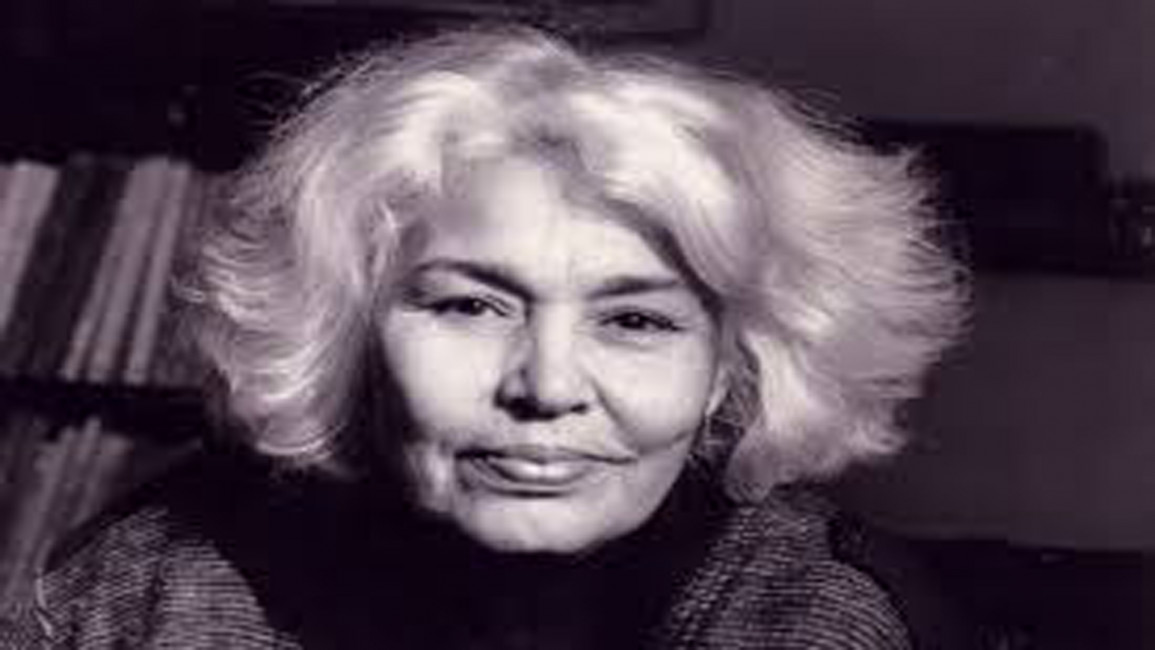
Nawal al-Saadawi's misreading of the Arab Spring
Back in college in the mid-1980s, we used to read Nawal al-Saadawi's novels to show how open-minded and liberal we were, not only toward Palestine but also other Arab communities.
I don't feel nostalgic about my days at college, but I wonder if the publications of this world-renowned Egyptian writer are still as attractive for the current young Arab generation, or if the massive revolution in the sources of knowledge and
| History will always remember that Sisi eradicated the myths of establishing an Islamist project. - Nawal al-Saadawi |
information has diminished her role, although she continues to publish books until now.
In the past two years, she published two novels, one of which addresses the January revolution. She also continues to participate in cultural forums in many countries and frequently publishes articles and conducts interviews with newspapers and television channels.
Honours
Nawal al-Saadawi, 84, is envied for her energy and dynamism. Last week, she was honoured in Tunisia and President Beji Caid Essebsi granted the highest national award to her for her contribution to culture.
She is a key contributor to the Arab culture given what she achieved and the changes she introduced to women's rights, our societies and political systems. Saying that does not mean we agree with whatever this psychiatrist, activist, novelist and writer has said in over 50 books.
My column on Nawal al-Saadawi is not because of the recent ceremony held to honour her, or the documentary about her by a German director shown a few days ago in The Hague, or even her appearance at cultural protests in London and Dubai over the past few weeks.
Saadawi has recently grown displeased with the current regime in Egypt, even though she supported Abdel Fatah al-Sisi because "he rid the Egyptians of MB rule" and "because history will always remember that Sisi eradicated the myths of establishing an Islamist project".
As a longtime and fierce ideological enemy of the Islamists no matter where they are, she has noticed that Sisi's popularity has declined as the Mubarak regime has assumed power again. She believes the 25 January revolution was foiled and that Hosni Mubarak's acquittal and the imprisonment of the revolutionists and accusations levelled at them of corruption and treason are just crazy. She also views the sentence against Ahmad Abu Dawma as shameful.
By saying that the upcoming Egyptian parliament will be a new setback, she looks more pessimistic than Mohammad al-Baltaji himself.
Misreading the times
| She was surprised by London University's refusal to host her because of her support for the current military rule in Egypt. |
Though Saadawi has lived in the US for some time, knows the West very well and was hosted by important forums and conferences, she was surprised with London University's refusal to host her because of her support for the current military rule in Egypt. She was also surprised that a British journalist who participated in a forum with her in London on the International Women's Day sees the 30 June events in Egypt as a coup d'etat, for toppling an elected president.
How could she find these statements surprising? It is even stranger that she thinks those making these statements "have lost common sense out of fear of the ruling forces or are cozying up to the Islamist forces that have grown up under subsequent governments in Britain and the United States since the days of former President Ronald Reagan and Margaret Thatcher."
Strangely enough, though Saadawi has been concerned with Egyptian society for decades, she does not mull over the choices made by the people. She does not know that theories remain theories and in reality things are much more complicated. Besides, getting rid of the MB was not as rosy as Saadawi wanted it to be for Egypt while she was protesting in al-Tahrir Square during the January revolution. Those who toppled MB rule brought a similar version of Mubarak's regime to power, according to her recent statement. May she live long.
Opinions expressed in this article remain those of the author and do not necessarily reflect the opinions of al-Araby al-Jadeed, its editorial board or staff.
This is an edited translation from our Arabic website.


